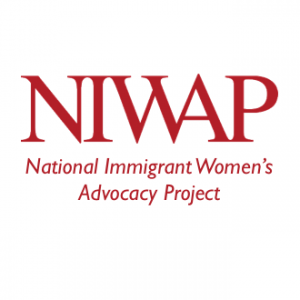The Rural Digest
The Rural Digest features replicable, time-tested intervention models, social change-advocacy strategies, and tools, templates, and materials as part of Praxis’ technical assistance to rural communities. We want to support you in your work. Note: current grantees of OVW’s Rural Program will receive email notification of these newsletters. If you think you are not on this email list, please email us at info@praxisinternational.org to let us know and we’ll get you added to our list.

Praxis can advise you on the implementation of your rural coordinated interagency responses to violence against women and/or assist you in strengthening individual and institutional advocacy on behalf of survivors. Access our centralized Rural Clearinghouse to learn more about rural-specific training, TA, information, strategies, research, and to connect with your peers (list of current Rural Grantees).
Advocacy Strategies: Resource Highlights
 Protecting Survivor Privacy
Protecting Survivor Privacy
 VAWA Confidentiality and Protections
VAWA Confidentiality and Protections
CCR Strategies: A Practical Tool for Rural Communities – The Praxis Domestic Violence Best Practice Assessment
Upcoming Rural and Related Training Events
Uniquely Rural Resources, Approaches, and Information
 Advocacy Strategies: Resource Highlights
Advocacy Strategies: Resource Highlights

 Protecting Survivor Privacy in Rural Areas
Protecting Survivor Privacy in Rural Areas
The Victim Rights Law Center (VRLC) has a new tip sheet: Protecting Survivor Privacy in Rural Areas. This tip sheet offers concrete ideas for protecting the privacy of sexual assault, dating and domestic violence, and stalking survivors’ privacy. It addresses five of the most-significant issues faced by victim services providers working in rural communities: 1) How to Maintain Confidentiality in a Close-Knit Community; 2) How to Let Victims Know about Your Services While Protecting Their Information; 3) How to Get from Here to There (transportation-related tips); 4) How to Transport Files Securely; and 5) How to Obtain Written Releases under VAWA. The tip sheet incorporates pointers from the field and is refreshingly free of legal jargon.
VRLC provides technical assistance for OVW grantees about survivor privacy and welcomes any questions you may have about privacy issues that come up in your work with survivors in rural areas. You may contact them at privacyTA@victimrights.org. For more information about VRLC visit their website at http://www.victimrights.org/
 VAWA Confidentiality and Protections for Immigrant Victims of Domestic Violence
VAWA Confidentiality and Protections for Immigrant Victims of Domestic Violence 
As the number of immigrant family violence victims accessing justice increases, so does the need for advocates to understand federal statutory protections afforded to immigrant crime victims by the Violence Against Women ACT (VAWA). In June 2018, Praxis conducted a webinar in partnership with National Immigrant Women’s Advocacy Project (NIWAP) that was packed full of important and up-to-date information for how to best protect immigrant victims of domestic violence. Listen to the recording or peruse many of the key resources to strengthen your response to immigrant victims.
- NIWAP (resource library)
- Department of Homeland Security U and T Visa Law Enforcement Resources
- U Visa Certification Toolkit for Judges and other Judicial Officers
- DOJ Certification of Nonprofit Legal Immigration Programs: Building Legal Capacity to Combat Domestic Violence and Sexual Assault Against Immigrants
 CCR Strategies: A Practical Tool for Rural Communities – The Praxis Domestic Violence Best Practice Assessment
CCR Strategies: A Practical Tool for Rural Communities – The Praxis Domestic Violence Best Practice Assessment 
The Domestic Violence Best Practice Assessment Guides and Tools are available for communities who want to use the lessons learned from over thirty years of CCR efforts, research, as well as recommendations from more than seventy Safety and Accountability Audits to examine and enhance their system’s response to domestic violence and battering. The focus of the current tools are on coordinated community responses, specifically 911 through prosecution charging decisions. The guides direct small, interagency teams to:
- Identify ways to reduce erroneous arrests of women who are battered and use force
- Enhance risk and danger assessment and information-sharing
- Strengthen interagency linkages
- Increase agency transparency and accountability for enhanced outcomes
Particularly useful for small, rural jurisdictions, the process involves three simple steps: 1) Organize and prepare, 2) Map and examine case processing, and 3) Report findings and recommend changes. The Guides provide the detail required to successfully conduct the assessment with a small group of practitioners, including direction about who should be on the team, how to access and prepare files for review, and checklists of core practices to guide team members’ review of case files. Below is just a sampling of the rural communities we have worked with who have conducted the Best Practice Assessment.
 Billings, Montana (2014)
Billings, Montana (2014)
Project Title: Domestic Violence Best Practice Assessment: 911 through Patrol Response to Domestic Violence
Lead Organization(s): Billings Police Department, Billings City/County 911 Center, Billings City Attorney’s Office
Discipline of Team Members: Dispatcher, Investigator, Domestic Violence Coordinator, Billings Police Department; and Victim Witness Program Director
Funded by: STOP Violence Against Women Act Grant
 Williams/McKenzie, North Dakota (2013)
Williams/McKenzie, North Dakota (2013)
Project Title: Domestic Violence Best Practice Assessment of the Police Patrol and Investigation Response to Domestic Violence
Lead Organization(s): North Dakota Council on Abused Women Services
Discipline of Team Members: Council on Abused Women’s Services North Dakota; Williams County State’s Attorney; and area law enforcement agencies
Funded by: Office on Violence Against Women Rural Grant Program
 Aroostook County, Maine (2012)
Aroostook County, Maine (2012)
Project Title: Domestic Violence Best Practice Assessment: Police Response to Domestic Violence
Lead Organization(s): Coordinated by Hope and Justice Project, Aroostook County Sheriff’s Office, Maine State Police, Presque Isle Police Department
Discipline of Team Members: St. John Valley Advocacy Coordinator; Family Violence Program Coordinator; Deputy District Attorney; Domestic Violence Detective; Director of Hope and Justice Project; Criminal Justice Advocate; Main State Police Trooper; Deputy Chief, Presque Isle Police Department; Patrol Officer, Presque Isle Police Department
Funded by: Office on Violence Against Women Rural Grant Program
As a result of conducting the Praxis Domestic Violence Best Practice Assessment, communities have developed and implemented a range of enhancements to their response to domestic violence, including:
 training on new follow-up questions for 911 operators to ask related to risk, strangulation, and whether children are present
training on new follow-up questions for 911 operators to ask related to risk, strangulation, and whether children are present
 improving consistency in risk assessment in patrol response
improving consistency in risk assessment in patrol response
 creating and implementing a domestic violence-specific incident report for patrol
creating and implementing a domestic violence-specific incident report for patrol
 establishing an advocacy-initiated response
establishing an advocacy-initiated response
 developing a state-certified training for patrol officers on responding to domestic violence
developing a state-certified training for patrol officers on responding to domestic violence
 creating new domestic violence investigator positions
creating new domestic violence investigator positions
Praxis has supported many communities in utilizing the Best Practice Assessment to advance their response to battering. We are available to assist you. We can work with you to explore how the Praxis Domestic Violence Best Practice Assessment could work in your community and/or to strategize and tailor the process to your local jurisdiction and circumstances. Please email us for more information and support: info@praxisinternational.org.
Resources to Learn More
To learn more, read any of the reports linked above and/or go to our webpage focused on the Domestic Violence Best Practice Assessment Guides. Specific resources are highlighted below:
- Overview video (approx. 17 minutes)
- Video on building a team (approx. 12 minutes)
- Past webinars featuring the Domestic Violence Best Practice Assessment Guides
- Download the Guides
 Upcoming Rural and Related Training Events
Upcoming Rural and Related Training Events
 OVW’s National Technical Assistance Provider Training Events Calendar
OVW’s National Technical Assistance Provider Training Events Calendar
Use this website to peruse the training and support available to you as an OVW grantee.
 Upcoming Training
Upcoming Training
- Wednesday, November 14, Praxis webinar: Interpreting for Victims of Domestic Violence and Sexual Assault, Register now
- Thursday, November 15, 2018, Praxis webinar: Uncover Disparity: Safety & Accountability Audit Design and Data Collection, Register now
- Tuesday, December 4, 2018, Praxis webinar: Supporting Safety Together: Reviewing Child Protective Services Policies, Forms, and Case Records, Register now
- Tuesday, December 18, 2018, Catholic Legal Immigration Network, Inc. webinar: Building Legal Capacity to Combat Domestic Violence and Sexual Assault Against Immigrants, Register now
- April 29-May 2, 2019, Praxis Community Assessment Institute, St. Paul, MN
- May 19-21, 2019, Alliance for HOPE 2019 International Family Justice Center Conference, Registration
- June 6-7, 2019, National Crime Victim Law Institute Annual Crime Victim Law Conference, Registration
- June 11-12, 2019, Sexual Violence Justice Institute National Institute for SART Leaders
 Uniquely Rural Resources, Approaches, and Information
Uniquely Rural Resources, Approaches, and Information
Learn about ways rural communities are working to end violence against women and are employing strategies to address related issues:
 OVW Tribal Consultation 2017 Annual Report
OVW Tribal Consultation 2017 Annual Report
 Rural Approaches
Rural Approaches
 New Rural Research and Resources
New Rural Research and Resources
- Life in Rural America
- Key Informant Perspectives on Rural Social Isolation and Loneliness
- Opioid Use, Misuse, and Overdose in Women (White paper specifically highlighting how rural location affects use and treatment)
- Domestic and Intimate Partner Violence: Some Do’s and Don’ts for Health Providers
- Strengthening Health and Health Care in Rural America
- Voices for food: methodologies for implementing a multi-state community-based intervention in rural, high poverty communities
- Interactive Map: Drug Overdose Deaths in the United States
This project is supported by Grant No. 2015-TA-AX-K057 awarded by the Office on Violence Against Women, U.S. Department of Justice. The opinions, findings, conclusions and recommendations expressed in this document are those of the author(s) and do not necessarily reflect the views of the U.S. Department of Justice.
[November 2018]

